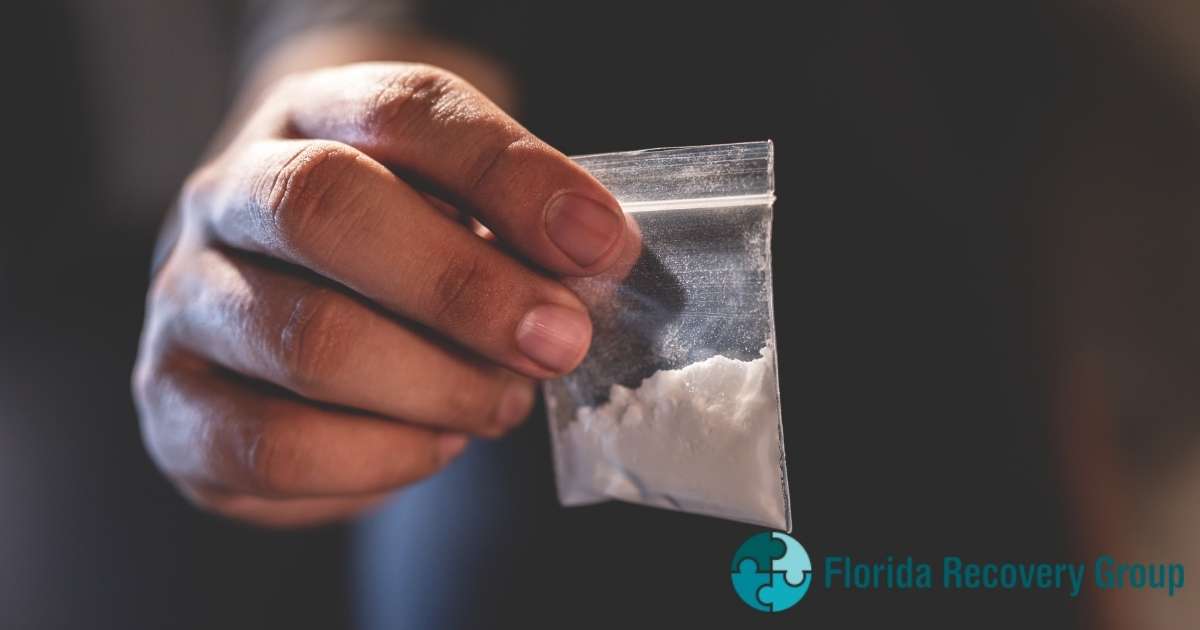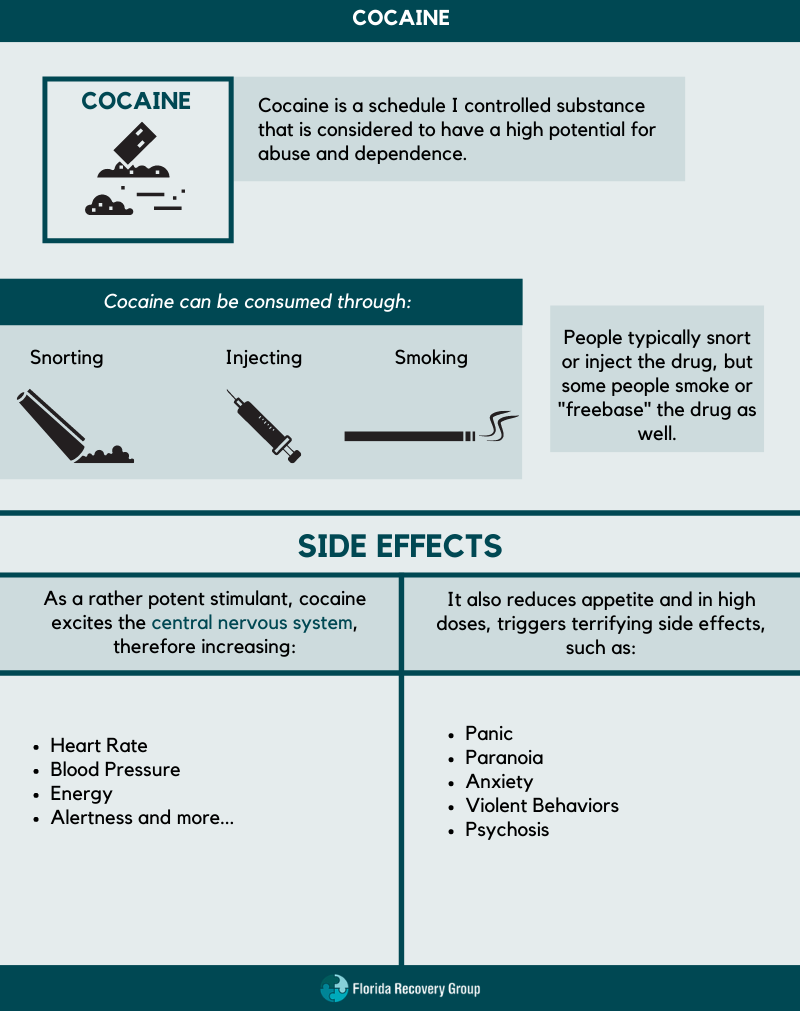
04 Dec Cocaine Detox: Withdrawal Symptoms and Treatment
Although cocaine withdrawal isn’t as intense or serious as withdrawal from other drugs like benzodiazepines or opioids, getting sober from cocaine has its own challenges. If you or a loved one are addicted to cocaine, our cocaine detox in Delray Beach, FL is here to help. Detox can help reduce your symptoms and care for you until you feel better. Then, you can move onto a treatment program that addresses your unique needs.
Drug withdrawal is one of the primary reasons why so many people avoid getting help. Between the difficult withdrawal symptoms and intense cravings, getting sober on your own isn’t easy. With the help of a professional cocaine detox program, you can safely flush the substance from your symptoms and get your recovery started on the right foot.

Cocaine Withdrawal Timeline and Symptoms
Most people will begin noticing symptoms of cocaine withdrawal as soon as the effects of the drugs wear off. This means, after long-term use, cocaine users will experience withdrawal symptoms as soon as 2-5 hours after the last use of the drug. Fortunately, cocaine has a short half-life, so most withdrawal symptoms should subside after 7-10 days.
Cocaine withdrawal symptoms include:
- Increased appetite and hunger
- Drug cravings
- Vivid dreams and nightmares
- Depression and anxiety
- Suicidal thoughts and/or actions
- Difficulty concentrating
- Slowed thinking and physical activity
- Chills, tremors, or muscle aches
- Low libido
- Fatigue
- Restlessness and irritability
Additionally, there are several other factors that will determine a person’s cocaine withdrawal timeline and symptoms. These are:
- Length of cocaine use – people who have been addicted to cocaine for several months or years may have more intense symptoms that last longer than someone who has only been addicted for a couple of weeks.
- Size and frequency of dose – those who take cocaine in large amounts or more frequently than others will have more severe symptoms for longer periods of time.
- Co-occurring disorders – co-occurring health conditions can complicate the withdrawal process and lead to longer, more intense symptoms.
- Polysubstance abuse/dependence – people who have developed a dependence on multiple substances may experience more severe withdrawal symptoms or even potentially fatal complications.
The Importance of Medical Detox for Cocaine Withdrawal
Mild to moderate cocaine users may be able to complete detox on an outpatient basis. However, more severe instances of cocaine addiction will require inpatient medical detox. If a person has relapsed several times before, has a co-occurring disorder, or a serious drug dependency, he or she should opt for an inpatient detox experience. Inpatient cocaine detox centers in Delray Beach, FL can provide medication and therapies to help prevent complications from withdrawal.
One of the more serious side effects of cocaine withdrawal is the risk of suicide and self-harm. People who stop taking cocaine suddenly may struggle with intense depression and anxiety that eventually lead to suicidal thoughts. This is because regular cocaine use impairs the brain’s natural production of dopamine – a chemical responsible for mood regulation. Without cocaine, users experience a lack of dopamine, which is what causes their withdrawal symptoms. Detoxing from cocaine in a medical environment can help patients monitor their symptoms and gain the support they need to stay safe.
Medications and Treatments Used During Cocaine Detox
While there are medications available to treat the symptoms of opioid and alcohol withdrawal, there are no medications that are directly approved to treat cocaine withdrawal. Usually, people who are detoxing from cocaine do so naturally because the potential symptoms aren’t life-threatening. However, people with increased anxiety or depression may struggle significantly during this time and require some medical assistance.
Medications like propranolol, an anxiety and blood pressure medication, is a beta-blocker that can help stabilize people who are going through cocaine withdrawal. Other medications, such as SSRIs, antidepressants, and mood stabilizers may be administered in detox to help patients stabilize their moods and prevent depression and anxiety.
While in a cocaine detox program, you may also participate in group or individual counseling sessions. Therapy is meant to help you better understand why you abuse substances and how you can better cope in the future. Therapy can also help you develop communication skills, problem-solving skills, and relapse prevention techniques. Inpatient detox programs may also host 12-step recovery meetings which can offer you a sense of support while you are getting sober.
Once you’re done detoxing, a drug and alcohol counselor should meet with you to discuss options for ongoing care. After all, detox doesn’t cure addiction – it just allows you to sober up enough to begin your recovery journey.
Get Started With Cocaine Detox in Delray Beach, FL Today
Being in a controlled environment while you detox from cocaine will ensure your safety, comfort, and sobriety. Although cocaine withdrawal is typically not deadly, it can be dangerous if you try to detox on your own. Rather than trying to overcome addiction by yourself, pick up the phone and call for help today. Our drug and alcohol treatment program in Delray Beach, FL is here to help.





